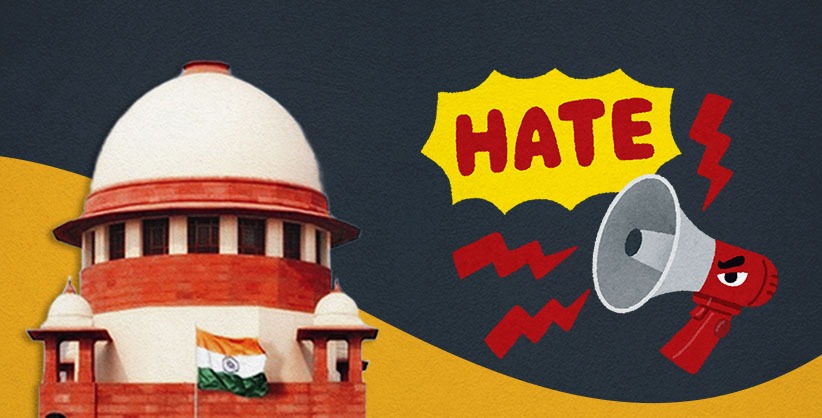NEW DELHI: The Supreme Court on Friday told the police heads of Delhi, Uttar Pradesh and Uttarakhand to ensure immediate suo motu action against those making "hate speeches" allegedly "targeting and terrorising of Muslims".
"We make it clear that any hesitation to act in accordance with this direction will be viewed as contempt of this court and appropriate action will be taken against the erring officers," a bench of Justices K M Joseph and Hrishikesh Roy said, in a strong warning.
Hearing a writ petition filed by one Shaheen Abdullah, the bench, however, clarified that such action will be taken irrespective of the religion that the maker of the speech or the person who commit such act belongs to, so that the secular character of Bharat as is envisaged by the Preamble, is preserved and protected.
Senior advocate Kapil Sibal and advocate Nizam Pasha who appeared for the petitioner claimed alleged the incidents of hate speeches have increased even though the top court had been approached in this regard previously.
Sibal cited a speech during the programme attended Delhi BJP MP Parvesh Varma.
Observing that such statements are "disturbing and shocking", the bench read out the portion which allegedly called for "slitting the throats".
"Are Muslims also making hate speeches," the bench asked Sibal, who said they should also not be spared if they did so.
"It is tragic, what we have reduced to in the name of the religion," the bench orally said.
The court issued notice to the Centre and others on the writ petition and issued interim directions in the matter.
"We feel that this court is charged with the duty to protect the fundamental rights and also preserve the constitutional values and the secular democratic character of the nation and in particular, the rule of law. The matter needs examination, and some form of interim directions," the bench said.
The court took into account complaint by the petitioner, saying it is "one of despondency and angst arising from the perception that despite suitable provisions in penal law being available, there is inaction or rather total inaction."
"The Constitution envisages Bharat as a secular nation and fraternity assuring the dignity of the individual and unity and the integrity of the country is the guiding principle enshrined in the Preamble...The petitioners points out that there are appropriate provisions such as Sections 153A, 153B, 505, and 295A of the Indian Penal Code. He voices his concern that no action has been taken even after this Court has been approached in the matter and the transgressions have only increased," the bench recorded in its written order.







